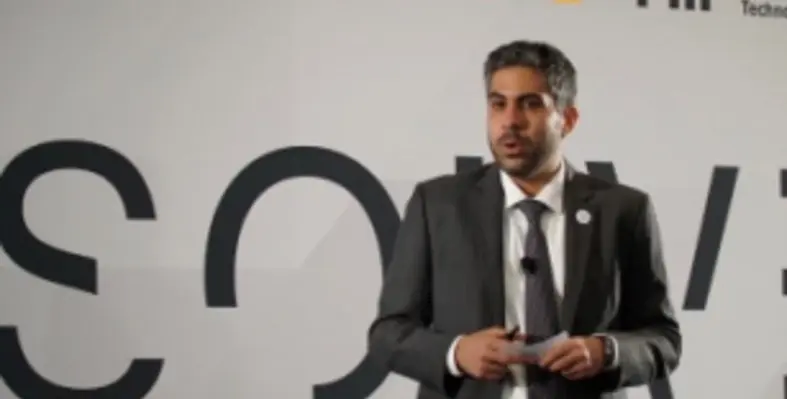The Mohammed bin Rashid Initiative for Global Prosperity, an initiative of the Global Manufacturing and Industrialisation Summit, has launched four Global Maker Challenges at the 2018 Solve Challenge Finals hosted by MIT Solve in New York, aiming to solve some real-world challenges including energy and sustainable agricultural production
The four Global Maker Challenges were identified in partnership with eight UN agencies and NGOs, and were determined through an intense roadshow in Boston, Vienna and Cairo led by MIT Solve ? a social enterprise that is associated with the Massachusetts Institute of Technology.
The challenges address sustainable cities, digital divide and digital literacy, rural transformation and zero hunger and sustainable energy. The design workshops brought together more than 300 global experts from governments, global organisations and private corporations, as well as start-up incubators and academic researchers.
Sustainable Energy
More than one billion people, primarily in developing countries, still lack access to electricity and hundreds of millions more live with unreliable electricity. Moreover, three billion people worldwide are forced to rely on polluting fuels like wood, charcoal and animal waste to cook and heat their homes, which both drive deforestation and expose them to dangerous levels of indoor air pollutants, resulting in at least 4 million premature deaths every year.
Ensuring access and transition to low-carbon energy for all not only mitigates climate change by limiting greenhouse gas emissions but also has the potential to spur progress in a host of other areas, from creating new economic opportunities and jobs to improving education and health outcomes.
Digital Divide and Digital Literacy
Half of the world?s population today is still not online. While Asia has the highest number of people without access, Africa leads the world in the percentage of the population without a connection at 88 per cent. Furthermore, in the countries that are connected, male internet users outnumber their female counterparts in every region of the world.
Digital technologies continue to spread rapidly while providing a myriad of benefits ? boosting economic growth and efficiency, enabling a more productive workforce, improving service delivery, and expanding educational opportunity
Rural Transformation and Zero Hunger
Extreme poverty still affects more than 700mn people across the word. Most of them are concentrated in rural areas and rely on agriculture production to generate income. While advanced input methods have increased agricultural production over the past five decades, this has resulted in damage to the environment, including land degradation, deforestation, depletion of groundwater and increased greenhouse gas emissions. These challenges are further compounded by the 1.3bn tonnes of food loss, costing an estimated US$1 trillion globally, that mainly occur in many low-income countries due to poor infrastructure, and inefficiencies in storage, packing and transport infrastructure.
Increasing crop yields and supporting rural farmers in adopting sustainable agricultural methods contributes to rising incomes, thereby reducing poverty, and in turn improving education and health outcomes for families in rural areas. Furthermore, the efficient use of land through technological innovation can increase productivity, protect natural resources and reduce waste resulting in more produce which is essential to feed the projected 9.7bn people on earth by 2050.
Sustainable Cities
More than half of the world?s inhabitants today live in urban areas, and 1 billion of them live in slum conditions. By 2050, an estimated 70 per cent of the global population will be living in cities.
Although cities provide opportunities for employment and access to better services, the unplanned and rapid urbanization of cities can create conditions that accelerate the spread of communicable diseases, especially in low-resourced neighbourhoods where clean water and sanitation infrastructure is entirely lacking, ageing, or cannot support high-density populations.
The Mohammed bin Rashid Global Maker Challenges will seek solutions that can ensure access and transition to low-carbon energy in underserved and remote communities, tools that can deploy internet connectivity to remote populations in a sustainable and affordable way, advanced methods that can allow for higher agricultural productivity using less land, water and labour inputs, as well as innovative products that can predict, detect and monitor outbreaks to prevent the spread and transmission of infectious diseases.
Badr Al Olama, head of the organising committee for the Global Manufacturing and Industrialisation Summit (GMIS), said, ?The UAE has placed innovation at the core of its manufacturing strategy since the father of our nation set out his vision for the country almost 100 years ago. By chartering a global path towards inclusive and sustainable industrial development, we must create an ecosystem that thrives on technology, creativity and community."
?Through the Mohammed bin Rashid Initiative for Global Prosperity, we can tackle key issues such as poverty, hunger, education and environmental sustainability. This is the beginning of a new movement, one where we align the aspirations of millennial with global good, channelling their energy and creativity to bring about opportunities for those that are in need and in the communities that need it most.?








